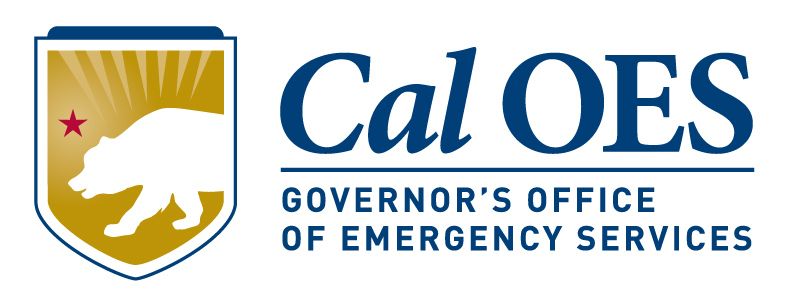The Importance of Language in Expanding Services to All Victims

Language is a crucial component of any agency's effort seeking to improve the life, safety, and well-being of all victims/survivors of domestic and sexual violence. This training session aims to create awareness and provide information about the realities faced by victims and their communities who are considered Limited English proficient (LEP) or are Deaf or Hard of Hearing (D/HoH), their legal right to access the justice system and life-saving services, and their participation in their individual and collective healing. We will explore the language access landscape in California, highlight language access legal obligations for all recipients of federal funding, and offer variety of tools and resources to facilitate meaningful access and effective communication with victims from diverse linguistic communities, including setting up language access protocols and policies, working with interpreters and translators, offering trauma-informed language supportive services, and creating multilingual spaces.
Presented by Ana Paula Noguez Mercado and Wendy Lau-Ozawa
Strengthening Victims in Underserved Communities: Mitigating Implicit Biases, Healing and Justice in the Muslim American Community, and Providing Language Justice and Access

Join us for a full day of training, discussion, and networking on how to best serve immigrant populations, people of color, and those with limited English proficiency. This interactive and self-reflective training is intended to increase cultural humility, broaden participant’s awareness of the presence and impact of implicit bias when working with victims in underserved communities, and equip them with tools to engage with clients in more open, respectful and empathetic ways. Additionally, the course will help service providers understand the unique challenges Muslim survivors face and discuss the intersections of gender based violence, Islamophobia and mental health. Finally, this training will address language justice and access in relation to victims of crime, who are LEP or non-English speaking. Participants will learn how to work with clients through interpreters and create inclusive multilingual spaces.
Presented by Sayida Peprah, PsyD, Areeba Siddiqui from HEART Women & Girls, and Lena Moran from Just Communities
The Importance of Language in Expanding Services to All Victims

Language is a crucial component of any agency's effort seeking to improve the life, safety, and well-being of all victims/survivors of domestic and sexual violence. This training session aims to create awareness and provide information about the realities faced by victims and their communities who are considered Limited English proficient (LEP) or are Deaf or Hard of Hearing (D/HoH), their legal right to access the justice system and life-saving services, and their participation in their individual and collective healing. We will explore the language access landscape in California, highlight language access legal obligations for all recipients of federal funding, and offer variety of tools and resources to facilitate meaningful access and effective communication with victims from diverse linguistic communities, including setting up language access protocols and policies, working with interpreters and translators, offering trauma-informed language supportive services, and creating multilingual spaces.
Presented by Ana Paula Noguez Mercado and Wendy Lau-Ozawa
Strengthening Victims in Underserved Communities: Mitigating Implicit Biases, Healing and Justice in the Muslim American Community, and Providing Language Justice and Access

Join us for a full day of training, discussion, and networking on how to best serve immigrant populations, people of color, and those with limited English proficiency. This interactive and self-reflective training is intended to increase cultural humility, broaden participant’s awareness of the presence and impact of implicit bias when working with victims in underserved communities, and equip them with tools to engage with clients in more open, respectful and empathetic ways. Additionally, the course will help service providers understand the unique challenges Muslim survivors face and discuss the intersections of gender based violence, Islamophobia and mental health. Finally, this training will address language justice and access in relation to victims of crime, who are LEP or non-English speaking. Participants will learn how to work with clients through interpreters and create inclusive multilingual spaces.
Presented by Sayida Peprah, PsyD, Areeba Siddiqui from HEART Women & Girls, and Lena Moran from Just Communities
WEBINAR- Japanese American Intergenerational Trauma and Culture Resilience: Implications for Survivors and Victims of Crime

Presented by traci ishigo
This webinar invites and engages professionals in critical reflection and dialogue about American history that centers Japanese American experiences of war, profiling, surveillance, forced removal, incarceration, and state-sponsored trauma, which continues to impact generations of Nikkei (people of Japanese descent) and their families in the United States.
The Importance of Language in Expanding Services to All Victims

Language is a crucial component of any agency's effort seeking to improve the life, safety, and well-being of all victims/survivors of domestic and sexual violence. This training session aims to create awareness and provide information about the realities faced by victims and their communities who are considered Limited English proficient (LEP) or are Deaf or Hard of Hearing (D/HoH), their legal right to access the justice system and life-saving services, and their participation in their individual and collective healing. We will explore the language access landscape in California, highlight language access legal obligations for all recipients of federal funding, and offer variety of tools and resources to facilitate meaningful access and effective communication with victims from diverse linguistic communities, including setting up language access protocols and policies, working with interpreters and translators, offering trauma-informed language supportive services, and creating multilingual spaces.
Presented by Ana Paula Noguez Mercado and Cannon Han


